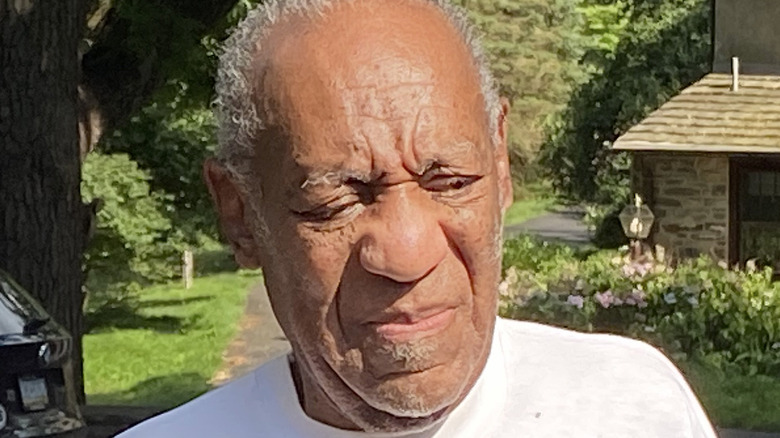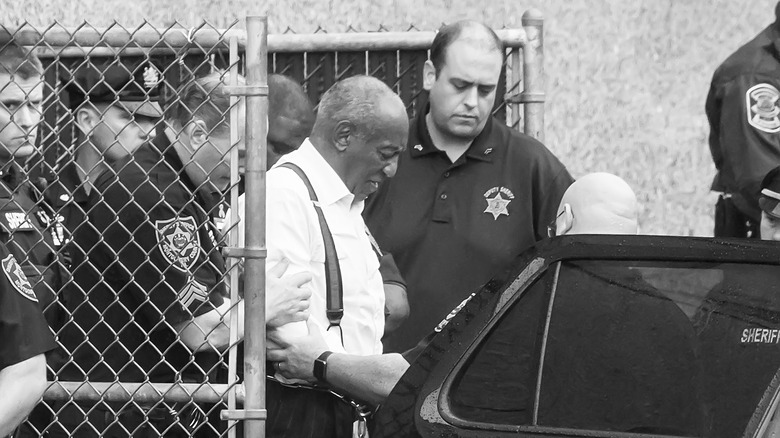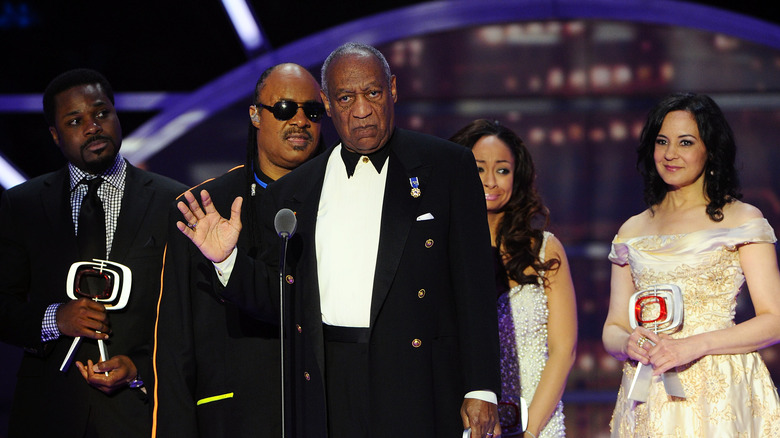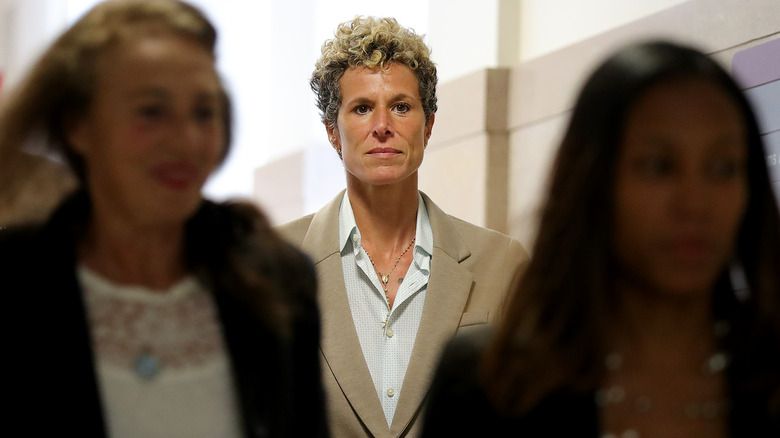Bill Cosby's Overturned Conviction Explained
Bill Cosby was convicted in 2018 of drugging and sexually assaulting a woman in a criminal case stemming from a 2004 incident. He was sentenced to three to 10 years in prison. However, Cosby effectively became a free man on June 30 when the Pennsylvania Supreme Court overturned that conviction finding that Cosby had been denied protection against self-incrimination, according to NBC News. The court's decision also went further, barring the formerly beloved entertainer from being retried for the same offenses. In essence, this decision effectively ended all criminal charges against him related to that case.
Cosby had been doing time for crimes allegedly committed against a specific woman in 2004, although allegations of sexual impropriety against him date back to the 1960s, according to The Daily Beast, and indeed, multiple other women testified against him during his criminal trial, in an attempt to establish a pattern of predatory behavior. Nevertheless, Cosby's team was able to convince a higher court that their client had been treated unfairly.
A judge ruled that Cosby's own testimony in a previous trial couldn't be used against him
In 2004, according to NBC News, Cosby allegedly drugged and sexually assaulted a woman named Andrea Constand. Bruce Castor, then Montgomery county district attorney, declined to press criminal charges against the comedian. Castor's decision put Cosby in an unusual situation because it opened him up to future civil action in which Cosby would be compelled to testify. Cosby's team argued, before, during, and after his trial, that Castor's decision not to prosecute Cosby informed later testimony in his civil trial, during which Cosby spoke openly about his alleged activities.
"Unable to invoke any right not to testify in the civil proceedings, Cosby relied upon the district attorney's declination and proceeded to provide four sworn depositions. During those depositions, Cosby made several incriminating statements," the court wrote.
The testimony Cosby gave was indeed used against him after one of Castor's successors decided to go ahead and pursue criminal charges. That was unfair to Cosby, said the court. "Cosby's convictions and judgment of sentence are vacated, and he is discharged," the court said.
Cosby admitted to drugging women and having sexual relations with them
The Bill Cosby case shocked the American public in 2014 after longstanding allegations against the comedian whom many thought of as a benign, lovable father-figure started getting media attention. According to The Cut, those allegations had been made nearly a decade before, but generally, no one paid much attention or believed that the actor who played Cliff Huxtable — the family man whom people associated with kids things like Jell-o Pudding Pops, Picture Pages, and Fat Albert, could have actually been a serial sexual predator. That wasn't the guy we knew and trusted.
Yet Cosby admitted as much after his first accuser, the previously mentioned Andrea Constand, came forward. According to The New York Times, Cosby admitted to asking his doctor for Quaaludes over a period of years in the 1970s, thinking the doctor understood the pills weren't for him. He didn't like them. They made him feel drowsy, but they were useful in his attempts to get women to have sex with him, The New York Times reported. Cosby said he thought of the powerful Quaaludes as "The same as a person would, say, have a drink."
Cosby also admitted to having a variety of sexual relations with various women, but in his mind it was consensual. Still, whatever Cosby said in those four days of depositions in 2005 and 2006 was deemed self-incrimination by the Pennsylvania Supreme Court when it was used in his 2018 criminal trial, effectively setting the ruined comedic icon free.
Cosby's accusers hope his overturned conviction doesn't dissuade other sexual assault victims from coming forward
In total, 60 women have come forward to accuse Bill Cosby of drugging, assaulting, and/or raping them, according to NBC News. The husband and father of five's assaults began in the 1960s, his accusers say. Some of them spoke out after hearing of the overturned conviction, including the woman he was initially convicted of drugging and assaulting, Andrea Constand.
She told CNN the court's decision wasn't just about the Cosby case, but about all who look for justice after a sexual assault.
"Today's majority decision regarding Bill Cosby is not only disappointing but of concern in that it may discourage those who seek justice for sexual assault in the criminal justice system from reporting or participating in the prosecution of the assailant or may force a victim to choose between filing either a criminal or civil action," Constand said.
Another accuser, Patricia Leary Steuer, told CNN that with the case being overturned, it makes her wonder what the point even was of going through 43 years of trauma, which her family also endured, to find no justice in the end. She said she is at least "comforted" that they got the truth about Cosby out there.
"In the end that was the only power we had in this situation," Steuer said, adding, "I hope this won't discourage people. It is a discouraging message to sexual assault survivors. I hope it won't because in the end all you can do is come forward and tell the truth."



